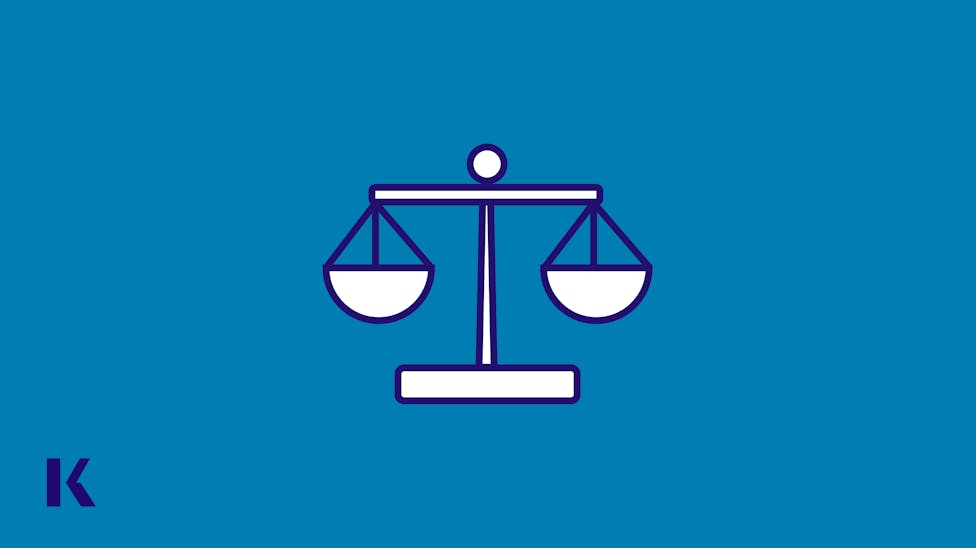Learning Theory in Practice: Focusing on Pedagogy and Innovation
by Lisa Young, Esq., Senior Director of Academics | June 8, 2020

Bar review courses carry a bit of stigma in some legal educational circles. After all, they do “teach to the test,” and that is a description that often is not meant as a compliment. Historically, bar prep has been an industry lacking the sort of market incentives that would encourage innovation, pedagogical or otherwise. In that environment, it ought not surprise that bar review courses were not known for their capacity to cultivate or encourage the analytical and writing skills that make for good lawyers. But, the bar exam is a test intended to assess just those sorts of skills. So, a bar review course that “teaches to the test” should be pedagogically inspired to put a focus on those skills in ways that the traditional “information dump” of a bar review course did not and could not.
That is why, when Kaplan entered into the bar prep arena, we were viewed as pedagogically-driven innovators. And we still are, especially now that bar prep has taken on an institutional dimension in which we partner with various law schools. Today, Kaplan Bar takes a cognitive and noncognitive skills-centered curricular approach when designing both our institutional courses (The Expedition Series) and our general bar review program (Kaplan Bar Review).
When designing these courses, the Kaplan Academic and Learning Science teams strive to ensure not only that the content is valid and aligns to what is tested in law school and on the bar exam but also that the construct is valid so that the learning and assessment of such learning is holistic. We know that in order for adult learners to be successful, learning needs to be meaningful, active, motivating, and significant (Fink 2003). This is why the content and instructional design of a Kaplan course meets students where they are on their learning journey and engages them by making that meeting a meaningful one.
What makes learning meaningful, motivating, and significant on a student’s journey?
Meaningful and significant learning is active, constructive, and easily retained; it relates new knowledge to prior knowledge, fosters self-efficacy, and motivates students to meet expectations. But, most importantly, meaningful and significant learning allows students to be fully engaged in the learning process. “To develop mastery, students must acquire component skills, practice integrating them, and know when to apply what they have learned.”(Ambrose, Bridges, DiPietro, Lovett, & Norman, 2010). Students are more likely to achieve mastery of their learning goals if they understand those goals, assume ownership of them, and assess their progress toward them.
Further, motivation and self-efficacy play a central role in a student’s engagement, retention, and performance. Metacognition, or thinking about thinking, is essential to a student’s success both in law school and on the bar exam. When students become experts in their own learning, success is much more readily achievable. But developing this expertise requires students to practice metacognition skills regularly. This is why we infuse our curriculum with formative assessments, self-assessments, and reflection exercises. Providing students with multiple opportunities to practice their metacognition skills on a regular basis is--in the field of bar prep--one of our most important innovations.
Learning Theory and Course Design in Kaplan Bar Review
Kaplan employs a “backward” course design for our institutional courses (The Expedition Series) and our general bar review program (Kaplan Bar Review). Wiggins and McTighe (2005) explain how employing a backward design allows for better planning and understanding of both the teaching and learning processes. We utilize their method by beginning the instructional design process by identifying desired results, then we determine how those results will be assessed, and lastly we plan instruction and teaching techniques that will foster the anticipated outcomes. This approach is learner-centered and highly effective.
The Expedition Series, which launched in 2019, is designed to provide law students with academic support skills and early bar exam preparation. The courses in this Series employ a “skills first” approach, with emphasis shifting from core foundational skills to the key component skills developed in law school―and tested on the bar exam―to the test-taking skills needed to fully demonstrate the legal knowledge and skills acquired during law school. These skills include study techniques, steps for adopting a strategic and growth mindset, and skills for optimizing test performance. Moreover, because a “skills-first” approach in a substantive vacuum would be counterproductive, all of the courses in The Expedition Series situate their "skills first" approach through the lens of substantive legal content. Finally, so that the substantive content facilitates―and does not overwhelm―the skill-based instruction, the substantive content is limited to a few narrowly-defined topics of law that are heavily tested on the bar exam.
For our general bar review program, the desired result is successful bar passage. Thus, when identifying our targeted goals and establishing course and subject-specific learning objectives, we look to the test blueprint as constructed by the National Conference of Bar Examiners (NCBE) and by state bar associations. We license and review released content in order to know and understand the precise outcomes we want our students to achieve.
Kaplan Bar’s cognitive and noncognitive skills-centered curricular approach enables students to thrive and succeed in law school and on the bar exam. By integrating skills with substantive law, a curriculum can help students become fluent in the rules of law and how to apply them. But by innovatively integrating the skills that pertain to metacognition into a legal curriculum, a Kaplan curriculum empowers law students to become more engaged by, more aware of, and more efficacious in their learning pursuits.
References
Susan A. Ambrose, Michael W. Bridges, Michele DiPietro, Marsha C. Lovett, Marie K. Norman. (2010). How Learning Works P. 95
L. Dee Fink. (2003.) CREATING SIGNIFICANT LEARNING EXPERIENCES: An Integrated Approach to Designing College Courses.
Wiggins, G., & McTighe, J.. (2005). Understanding by Design. Alexandria: Association for Supervision and Curriculum Development.

Lisa Young is Senior Director of Academics and Product at Kaplan Bar Review. In this role, she oversees the creation of content, designs course curriculum, and manages faculty and product vision to ensure student success. She received her J.D. from Seattle University School of Law in 2000 and has been preparing students for the bar exam since 2001. Prior to working at Kaplan, Lisa created, directed, and taught in The Bar Studies Program at Seattle University School of Law where she integrated bar skills into the law school curriculum.
See more posts by Lisa Young, Esq., Senior Director of Academics
